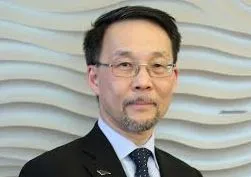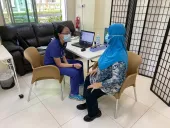
New Zealand Ministry of Health’s chief upgrades system by learning from shortfalls
Chai Chuah is the Acting Director-General for Health and Chief Executive of the Ministry of Health in New Zealand. In this interview, he shares with Healthcare Asia lessons learned from the government’s response to the Christchurch earthquake, a new philosophy in approaching the healthcare targets in New Zealand, the biggest challenges facing his leadership and the innovative ways that the Ministry of Health is making healthcare better for New Zealanders.
HA: What lessons can be learned from natural disasters — drawing from your experience in the Christchurch earthquake?
We were more focused on health events, like a pandemic, we thought that the generic process was setting up for a pandemic would easily fit in in a national disaster. It’s quite different around a natural disaster versus a pandemic. The pandemic is more about containment, public health, basically national disaster... initially it should be around trauma. Another thing we learned more is that the recovery planning process needs to start the same day as we start the rescue. Because we were so focused on the rescue, the recovery process didn’t start for a little while.
HA: How do you balance making changes in your leadership while being ‘respectful of the past’?
Our biggest limiting factor is the capacity, capability and the culture of our leadership. They’re only doing what they know and that’s because of what they’ve learned from the past. And that’s actually suitable for looking after the New Zealand health system in the past, but it is insufficient to take us forward.
HA: Is there a direct link to your change in philosophy in the ministry and to how much you have improved in reaching your targets?
We’ve changed from the early years from just focusing on same system, just focused on getting the number. Now we’re more interested to understand, so how did you achieve that? The question of ‘how did you achieve that?’ is much more interesting for us, because you can actually achieve the target in multiple ways and some of the ways are actually not sustainable. So now our conversation is much more. It’s great that you hit the target, so let’s talk about how did you do that?
HA: What’s the biggest challenge, is it in the primary care, is it in the hospital care, is it managing the transition of patients through that, is it the technology behind that?
There are multiple things that are actually putting pressure on the system, and there’s a push and pull on all of them. And different jurisdictions will have different nuance about that. So it’s about understanding.
First of all you got to understand the key elements, all those things play a part in terms of actually putting a pressure on the system. So you’re actually going to start to look at and address those issues.
HA: What are the things that you are trying to change as you try to get through the system?
The key thing that we’re trying to get change through is how do we actually get our New Zealanders to take more responsibility in terms of keeping themselves well, and secondly is how do we work with our provider organization and the professions to solve, work in partnership with the community. It’s a very difficult thing because it’s a paradigm shift into who holds power. So most traditional health systems, the power lies in the profession and the people who run health organization in hospitals. So patients come and receive service and they leave.
In the 21st century patients are wanting much more to be having a say in what you do to them. Even when you go to a hospital, they want to say, ‘I want a second opinion, I just don’t want to take the first one you gave me, where else can I go, I’ve done my research on the Internet, what about this option?’ So the power shift is coming forward. In New Zealand we’re trying to say, let’s get these citizens much more engaged. Let’s get providers and profession to respond.
To do that has implications on technology, has implications on our workforce training and development, has got implications around who do we develop in terms of who will lead this change. We’ve actually put in place electronic transactions; all of the transactions are electronic.
GP referrals to hospitals are electronic, discharge of hospitals back to GPs is electronic, GPs’ prescriptions to pharmacies are electronic.
We’ve just launched the patient portal. We got to the point where we’ve put enough content. We’ve got sufficient clinical leadership so that’s been launched with seven of our most senior GPs.
We’ve also just launched the patient portal. We got to the point where we put enough content and sufficient clinical leadership from seven of our most senior GPs who we have also appointed as e-portal ambassadors.













 Advertise
Advertise













